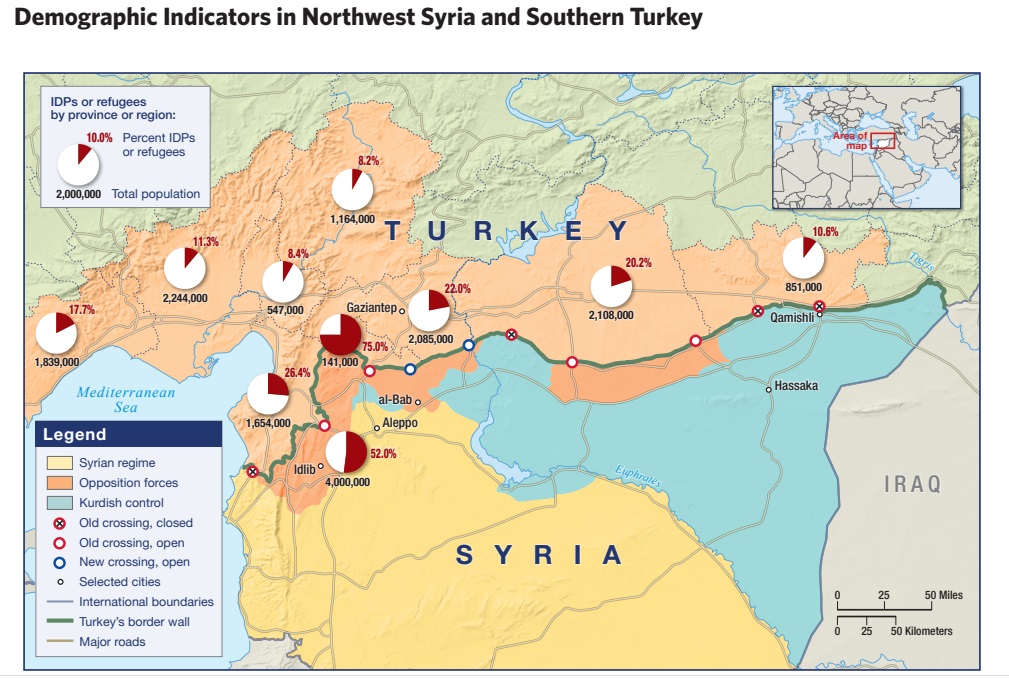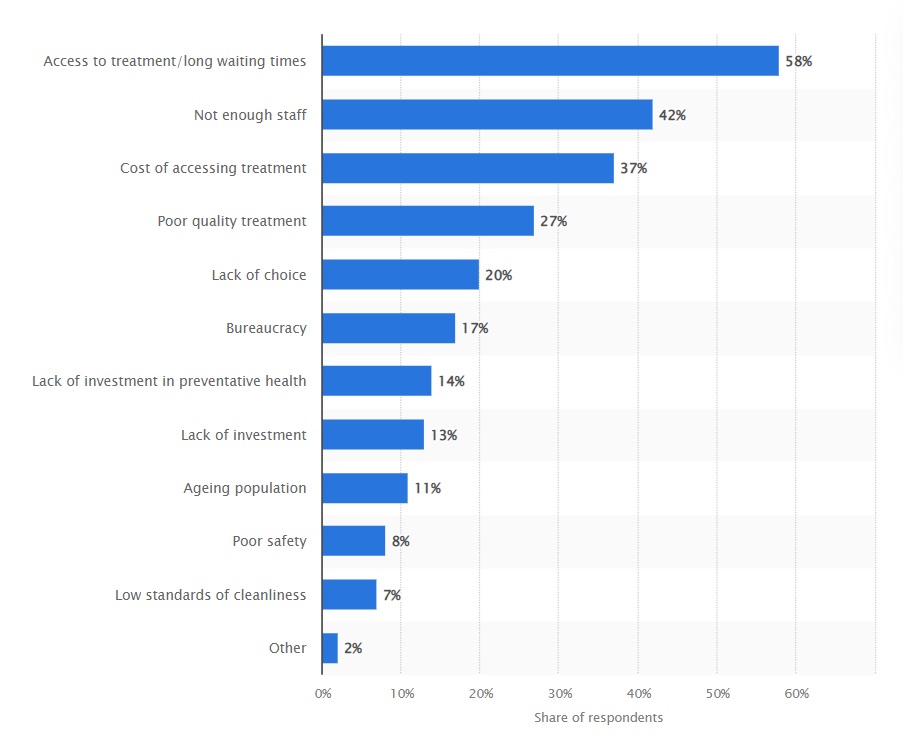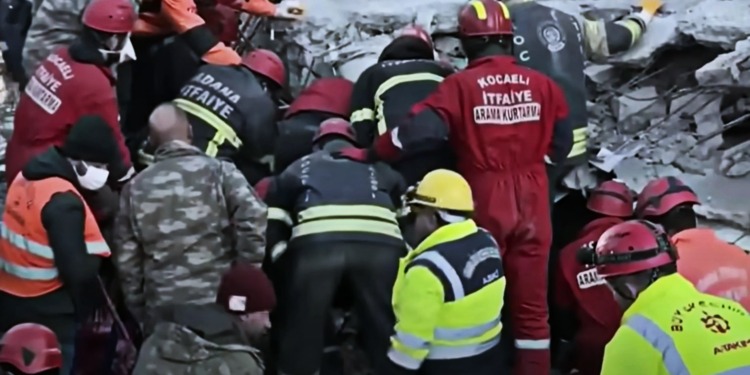Much of the world is horrified and transfixed by the devastation caused by the earthquake in Southeast Anatolia and Northwest Syria. So far, over 42,000 confirmed deaths are reported, many more injured and left homeless and more than seven million children are affected, according to UNICEF. The full extent of people who have died, injured, or are left homeless, is unknown; nor is the extent of critical infrastructure damages.
A natural disaster of this magnitude has an enormous direct and indirect effect on humans, animals, plants, and the environment which are the key elements of One Health (for a full explanation of the concept, see the website: One Health Initiative).
The fact that the sub-region is politically unstable makes the challenges seem almost insurmountable.
In the period after immediate relief efforts, there are heightened possibilities of further health insults such as infectious diseases. The purpose of this article is to suggest that future efforts should take into account the One Health concept, not heretofore done before to any extent in post-disaster situations.
Data is sparse at this juncture on the February 6th earthquake, so the aim is not to either predict or proscribe specific actions to be taken.
In essence, the objective is to put this multisectoral approach as a priority in the thinking of national and international leadership—before it is too late.
Humanitarian conditions in the sub-region are critical factors in taking action
This sub-region is divided into separate areas of control—under the Syrian Democratic Forces in northeast Syria, and Turkey in several cantons. Border areas connect southern Turkey and regime-held Northwest Syria, with agreements that delimit zones of influence and public sector activities.

In recent years large influxes of refugee populations and virtually constant military conflict have worsened living conditions. Many of the different economies are agriculture dependent, built on smallholder livestock and poultry, farming, each the source of food and income.
Urban centers in many cases have been totally destroyed or operate at minimal levels without water and sanitation, or pest control, exacerbating the potential for disease spread.
Simply put, across all parts of the sub-region, as a result of the collapse of basic infrastructure such as water, sewerage, and power, with supply systems shattered, communities will be treated for the most urgent short-term needs. And already in short supply, many professional cadres will be needed to address the manifold problems that exist early—and later. For example, preventing cholera will need to be a priority.
Indeed, the problems described cut across virtually every sector and aspect of any effort to regain a return to some level of normalcy. That said, dealing with disease risks in a holistic manner must be a linchpin for local and national authorities, encouraged and supported by the international community.
The pre-earthquake health situation in the region pre-earthquake
With respect to both human and animal health, throughout the sub-region problems existed but data were limited. Where available, it seems to be primarily a part of national reporting.
Human Health
In Turkey, according to the survey conducted by Ipsos in 2022, almost 60 percent of the respondents considered that access to treatment and long waiting times were the biggest problems facing the healthcare system in Turkey. A further 42 percent stated that not having enough staff in healthcare was the biggest problem:

As to Syria, the World Health Organization (WHO) reported that the “already fragile health system is overstretched with additional strain from the COVID-19 pandemic”. Nearly a quarter of all hospitals and one-third of all primary health care centres remain non-functional and unable to respond to the growing health needs.
As the crisis enters its twelfth year, 6.9 million people remain internally displaced and 5.6 million people have fled the country as refugees, the vast majority to neighboring countries.”
With respect to refugee population situations, in 2021 a medical mission visiting Syrian refugee camps in Turkey found “The medical conditions noted to be most prevalent included acute ailments such as upper respiratory infections, gastroenteritis, conjunctivitis hepatitis A, urinary infections Many psychiatric conditions including depression, anxiety and post-traumatic stress disorder were seen among all patient groups. Tobacco abuse was also prevalent among adults.”
Animal Health
Reporting in the region on livestock and poultry is limited but both have been recognized as major economic assets and providers of food security. According to the World Food Programme, there are some 874,000 quake-affected people in Turkey and Syria in need of food assistance. That figure includes 284,000 newly displaced people in Syria and 590,000 people in Turkey (the latter breaks down to 45,000 refugees and 545,000 internally displaced people).
Further, the spread of contagious transboundary disease was a high-risk factor in the sub-region and was reliant on vaccination. While Syria did not, Turkey conducted a Performance Veterinary Services (PVS) review which included a fifteen-year Veterinary Strategy, spanning animal health, welfare, identification, and registration.
This study forecasted the need for significant increases in human and financial resources to address proposed new programmes. The PVS identified various areas requiring attention, including strengthening the veterinary workforce, and while there had been additional funding, concerns were that it may not be sustained.
What we know has been done so far (as of this writing)
With respect to human health, the World Health Organization (WHO) initially delivered to Turkey and the Syrian Arab Republic 72 metric tons of trauma and emergency surgery supplies, including treatments. Significantly more WHO support has been provided and growing, but it is unclear the extent to which these go beyond responding to urgent care.
Further, there have been massive outpourings of supplies and technical support from many countries, bilateral and multilateral institutions, non-governmental organizations, and civil society organizations. These assistance flows are continuing but at this point, it is difficult to determine how much has gone beyond addressing urgent care needs, vaccinations, and technical support on the ground. Or how much more is needed.
As to veterinary-related financial and supply assistance, this has been even more difficult to discern, but likely substantial. Similarly, steps to ameliorate environmental degradation covering such aspects as access to water and sanitation, are not known, at this juncture.
A practical proposal for early response: As a first step, a multisectoral team to identify high-priority One Health threats
As an early step, a multisectoral team comprised of the four UN agency experts should assess highest priority One Health threats and develop an early response package.
Based on preliminary findings a set of high-order actions should emerge which might include provision for human and veterinary assistance, testing capacity and vaccines for both, early surveillance capability, and local awareness communication strategy, and where initial environmental assessments are most needed.
Activities Over Time: From needs assessment to reconstruction, capacity-building, management, and outbreaks monitoring
Funding will be needed to effectively take on One Health-related concerns.
A list of activities over time to fully address the necessary reconstruction effort, covering both human and animal health needs, might include items such as:
- Increase technical human health and veterinary capacity
- Risk assessment to determine vaccination priorities
- Risk-based surveillance programs to monitor outbreaks, movements, and emerging vaccination requirements
- Reconstruct and improve priority human and animal health infrastructure, and maintenance capability
- Address high environmental threats to health
- Put in place effective outbreak management systems
- Enhance stakeholder awareness.
Regarding infectious disease there is the often-used quote, “viruses know no walls”. In Southeast Anatolia and Northwest Syria, there are no walls any longer.
Editor’s Note: The opinions expressed here by the authors are their own, not those of Impakter.com —Featured image: Rescue workers find victims alive one week after the earthquake (screenshot) Source: PBS news video 14 February 2023










